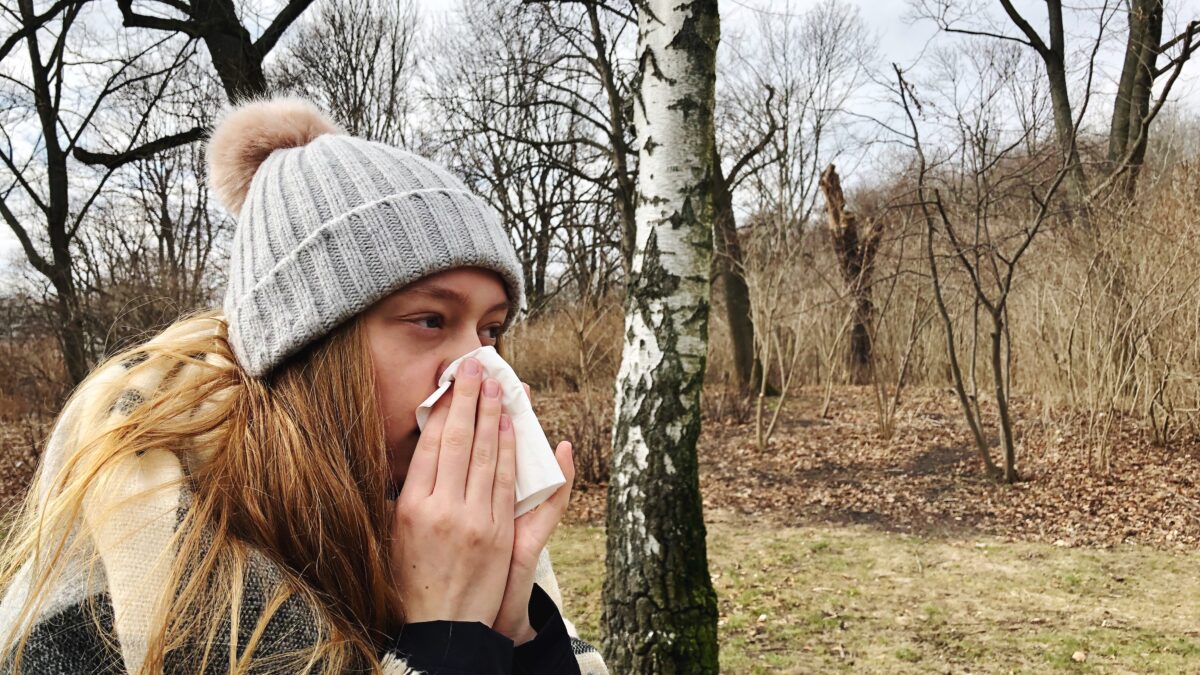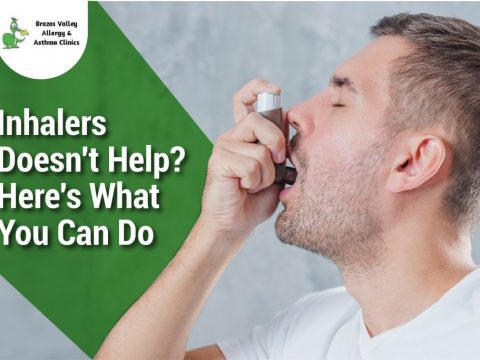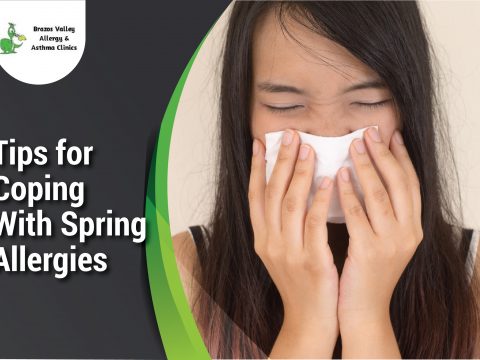- 979-485-9287
- office@bvallergy.com
-
 979-251-7804
979-251-7804
Is It Allergies or a Sinus Infection? How to Tell During the Fall Cold Season

Summer Allergens in the Brazos Valley: What You Need to Know
August 26, 2025
Allergy Testing Before the Holidays: Uncover Your Triggers
October 23, 2025You wake up on a crisp fall morning, but instead of enjoying the cool air, you’re greeted by a stuffy nose and endless sneezing. In Central Texas, fall often means ragweed pollen, moldy leaves, and seasonal colds—all of which can leave you feeling miserable.
The tough part is figuring out what’s really behind it. Allergies and sinus infections share many of the same symptoms, from congestion to fatigue, making it difficult to know whether to take an allergy pill, rest, or consult a doctor.
That’s where Brazos Valley Allergy & Asthma Clinics comes in. With our trusted allergy specialists in Texas, we’ve guided families through these confusing symptoms for years. In this blog, we’ll show you how to tell the difference between allergies and sinus infections so you can find relief and breathe easier this fall.
Don’t Let Congestion Win
Start Your Allergy Treatment with Us
Understanding Fall Allergies
During the cooler months, many people confuse sniffles with a lingering cold, but fall “cold season” allergies are often the real culprit. Allergies occur when your immune system mistakes harmless substances (pollen or mold spores) as threats and overreacts, leading to classic allergy symptoms like sneezing and itchy eyes.
In Central Texas, fall can be especially tough. Ragweed pollen peaks this time of year, and mold thrives in damp leaves and humid conditions. Cedar and oak pollen also add to the mix, making it nearly impossible to avoid triggers if you spend any time outdoors.
When these allergens trigger a reaction, it often includes:
- Sneezing fits that seem to come out of nowhere
- Itchy, watery, or red eyes
- A runny or congested nose
- Postnasal drip that causes throat irritation
- General fatigue that makes it hard to get through the day
Unlike a cold or sinus infection, allergies don’t fade after a week. They stick around as long as the allergen is in the air, which in our region can mean weeks (or even months) of frustration.
What Is a Sinus Infection (Sinusitis)?
While allergies can linger for weeks, a sinus infection, also known as sinusitis, follows a different path. It happens when the sinuses around your nose and eyes become inflamed, usually after a cold or untreated allergy congestion. Viruses are the most common cause, but bacteria can also be involved.
Common sinus infection symptoms include:
- Facial pain or pressure
- Thick yellow or green nasal discharge
- Reduced sense of smell
- Fever or body aches
- Pain in the upper teeth or jaw
Sinus infections can last anywhere from a few days to several weeks, depending on severity. Recognizing these signs early helps you know when it’s more than just a bad allergy day.
Allergies vs. Sinus Infection: The Key Differences
By now, you can see that allergies and sinus infections share some symptoms or characteristics. When you compare sinus infection symptoms vs. allergies, watch for a few telltale signs that can help you spot the difference more quickly. Knowing what to look for can save you time, discomfort, and unnecessary treatments.
Here’s how to quickly tell them apart:
|
Symptom |
Allergies |
Sinus Infection |
| Itchy, watery eyes | Very common | Rare |
| Fever | Uncommon | More likely |
| Duration | Lasts as long as allergens are present | Usually 1–2 weeks with treatment |
| Nasal discharge | Clear and watery | Thick, yellow, or green |
| Facial pain/pressure | Rare | Frequent |
Tip: Itchy eyes usually point to allergies, while facial pain and fever suggest a sinus infection.
When to See a Doctor
Most allergy or sinus issues can be handled at home, but some symptoms need a doctor’s attention. Knowing the warning signs helps you get professional care before things get worse.
Call your doctor if you notice:
- Severe facial pain or pressure that does not ease up
- High fever alongside congestion and fatigue
- Symptoms lasting more than 10 days without any improvement
- Difficulty breathing or worsening asthma symptoms
Allergies can sometimes make asthma harder to control, and untreated sinus infections may spread. Getting help early means faster relief and fewer complications.
How BV Allergy & Asthma Clinics Can Help
If you’re unsure how to tell if it’s allergies or a sinus infection, Brazos Valley Allergy & Asthma Clinics can guide you. We start by digging into the root cause with a detailed history check, thorough exams, and allergy testing.
Here’s what we offer:
- Allergy testing and personalized treatment plan
- Immunotherapy (shots or drops) for lasting relief
- Asthma management and support
- Practical tips to reduce allergen exposure
With convenient locations across Central Texas, our team makes expert care easy to access. From allergies to asthma and sinus problems, we’re here to help you breathe better and feel your best this season.
Breathe Easier with Expert Care

Knowing whether you’re dealing with allergies or a sinus infection makes all the difference in finding lasting relief. Understanding the symptoms and how they overlap helps you take charge of your health, rather than feeling stuck in the cycle of congestion and discomfort.
If you’re ready for answers, our team at Brazos Valley Allergy & Asthma Clinics is here to help. Schedule an appointment today and get expert care tailored to your needs. With the right treatment, you can breathe easier, feel stronger, and enjoy the season without worry.
Don’t Let a Stuffy Nose Slow You Down
Frequently Asked Questions
- Can stress or lack of sleep make my allergies or sinus problems worse?
Definitely. Stress and poor sleep can weaken your immune system, making allergy symptoms feel more intense and infections harder to shake.
- Can allergies actually turn into a sinus infection?
Yes. If allergies cause ongoing nasal congestion, it can block your sinuses and create the perfect environment for an infection to develop. That’s why treating allergies early matters.
- Can I have both allergies and a sinus infection at the same time?
Yes, and it’s more common than you think. Allergies can set the stage for sinus infections, making it a double challenge if both hit at once.
- Why do my symptoms seem worse in the morning?
Allergens, like dust mites, mold, or pet dander, can build up overnight. Sinus pressure also shifts while you sleep, which may explain why mornings feel the heaviest.




